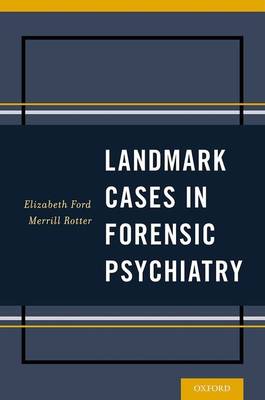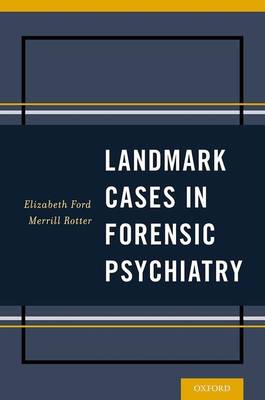
Je cadeautjes zeker op tijd in huis hebben voor de feestdagen? Kom langs in onze winkels en vind het perfecte geschenk!
- Afhalen na 1 uur in een winkel met voorraad
- Gratis thuislevering in België vanaf € 30
- Ruim aanbod met 7 miljoen producten
Je cadeautjes zeker op tijd in huis hebben voor de feestdagen? Kom langs in onze winkels en vind het perfecte geschenk!
- Afhalen na 1 uur in een winkel met voorraad
- Gratis thuislevering in België vanaf € 30
- Ruim aanbod met 7 miljoen producten
Zoeken
Omschrijving
This book is the first of its kind to combine concise, easy-to-understand summaries of 116 landmark mental health cases for practicing clinicians, attorneys, educators and students with over 130 board-style multiple-choice questions to help consolidate knowledge. It is an invaluable resource for both test preparation and clinical practice.
Specificaties
Betrokkenen
- Auteur(s):
- Uitgeverij:
Inhoud
- Aantal bladzijden:
- 240
Eigenschappen
- Productcode (EAN):
- 9780199344659
- Verschijningsdatum:
- 12/06/2014
- Uitvoering:
- Paperback
- Afmetingen:
- 171 mm x 234 mm
- Gewicht:
- 348 g

Alleen bij Standaard Boekhandel
+ 99 punten op je klantenkaart van Standaard Boekhandel
Beoordelingen
We publiceren alleen reviews die voldoen aan de voorwaarden voor reviews. Bekijk onze voorwaarden voor reviews.









